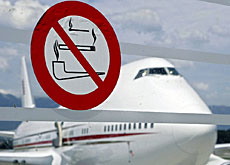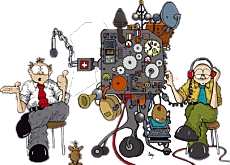Young Swiss tune in to Balkan slang

Heavily-accented Balkan slang is the language of choice for many Swiss teenagers who are copying the rough syntax of their classmates.
Also known as Jugodütsch (Yugo German), this is Swiss German with a twist, chiefly influenced by Kosovar Albanians.
But should the Kosovars be pleased that Jugodütsch is gaining ground in youth culture, or is the mock-aggressive delivery not just another case of unfair stereotyping of Albanians in Switzerland?
“Some people copy this accent as a way of showing that these immigrants are not welcome,” youth worker Kemajl Shaqiri told swissinfo. “But others do it just for fun.”
Shaqiri, who works with young immigrants in Basel, is himself a Kosovar Albanian and has lived in Switzerland since 1991.
King Ermal, an 18-year-old rapper of Kosovar origin living in Zurich, does not see what the fuss is about.
“The media is blowing [this] up out of proportion,” he told the French-language L’Hebdo magazine.
“The majority of us try to speak Swiss German, especially those my age,” he added.
Identity problem
“The important thing is to think about where so-called Jugodütsch comes from,” said LUL DxE, another young Kosovar rapper living in Bern.
According to Shaqiri, this new language style stems from an identity problem, with some groups turning inwards instead of integrating.
Because the Swiss-German dialect is a national treasure, the notion of Swiss youngsters adopting the immigrant style is alarming to some.
The topic is often covered in the tabloid press, with headlines such as “Will our children soon learn only Balkan German?”
But as Beat Zemp, president of the Swiss Teachers’ Association, points out, you cannot control how children express themselves in their free time.
“It is a youth trend at the moment and as long as it’s cool we can’t change that,” Zemp told swissinfo.
Language support
Zemp stresses the importance of language support for the children of immigrants, beginning in the pre-school years.
“The stigmatisation will stop when children grow up speaking better German.”
Stigmatisation comes into play in the nature of the language being picked up by the wider community. Ask a young Swiss German for a sample of Jugodütsch and they might suggest something like “Stig us üs dini Velo!”.
It means “get off your bike” and is essentially a threat. The phrase has all the characteristics of Yugodütsch, riddled with language errors and delivered macho-style in a thick Balkan accent.
Obscenities
If Swiss parents are bewildered by their children’s choice of accent and vocabulary, that is the whole point. It is a fashion that belongs to youth culture and excludes the older generation.
Basil Schader from the Zurich Teacher Training College has carried out extensive research on the prevalence of Jugodütsch in the 12- to 15-year-old age group.
He found that half of all Swiss-German school pupils knew Albanian words, on average four. Some knew up to 40 expressions.
“The phenomenon is present across German-speaking Switzerland and is similar to Turkish-influenced German which moved across into popular culture in Germany,” Schader told swissinfo.
Schader found that two-thirds of the words known and used by non-Albanian speakers in Switzerland were obscenities.
Not so exclusive
Before Jugodütsch fades in the face of the improving language skills of the next generation of immigrant children, it may become a victim of its own success, Zemp believes.
“Balkan slang has also crossed over into adult comedy which might have the effect of turning the children off it because it’s not exclusive anymore.”
But the cult of Jugodütsch is still far from its sell-by date.
Kosovar Swiss have a strong presence in the Swiss rap and hip hop scene, with rappers such as LUL DxE cornering the market on streetwise in Switzerland.
Jugodütsch or Balkan slang is Swiss German with a twist, chiefly influenced by Kosovar Albanians.
It is a mixture of standard German and Swiss German, containing slang words common to all Balkan languages.
Speakers simplify the sentence structure, drop articles and don’t stick to gender and case rules.
There are more than 330,000 people from former Yugoslavia permanently resident in Switzerland (Federal Migration Office, end December 2006). Almost 200,000 of these are from Serbia, mainly Kosovar Albanians.
After the Italians, the Kosovars are the largest single immigrant community in Switzerland.

In compliance with the JTI standards
More: SWI swissinfo.ch certified by the Journalism Trust Initiative












You can find an overview of ongoing debates with our journalists here . Please join us!
If you want to start a conversation about a topic raised in this article or want to report factual errors, email us at english@swissinfo.ch.